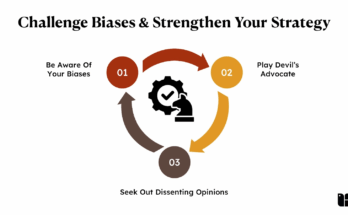Introduction
In today’s world, uncertainty is a constant. Accidents happen, disputes arise, and unforeseen circumstances can lead to complex legal challenges. Whether you are an individual, a family, or a business owner, protecting your legal rights is not a luxury—it is a necessity. One of the most effective yet often overlooked tools for achieving this protection is insurance. Beyond its traditional role of providing financial security, insurance also serves as a powerful safeguard for your legal rights. It ensures that when legal matters surface, you have access to the resources, representation, and protection you need to navigate them with confidence.
This article explores the role of insurance in safeguarding legal rights, demonstrating how it serves as both a shield and a support system. We will look at how insurance intersects with legal protection in everyday life, why it is essential for both individuals and businesses, and how different types of insurance contribute to preserving your rights in the face of legal disputes.
Insurance as a Legal Safety Net
At its core, insurance functions as a safety net against unexpected risks. While many people think of it primarily in terms of financial compensation—such as repairing a damaged car or paying hospital bills—insurance often includes a vital legal component. Policies typically offer coverage for legal fees, court costs, settlements, and even access to professional attorneys.

This aspect of insurance transforms it from being merely about financial reimbursement into a mechanism for legal empowerment. When individuals or businesses face lawsuits, liability claims, or contract disputes, the cost of legal defense can be overwhelming. Without insurance, many people would be unable to afford the representation necessary to assert or defend their rights. With insurance, however, the playing field becomes more balanced.
How Insurance Protects Legal Rights
1. Legal Defense Coverage
One of the most immediate ways insurance safeguards your rights is by providing legal defense coverage. For example, if someone files a liability claim against you—say, after an accident at your business—your liability insurance does not only cover damages but also pays for your legal defense. This ensures that you can secure qualified representation without bearing the financial burden alone.
2. Access to Professional Attorneys
Many insurance providers maintain networks of experienced attorneys who specialize in relevant areas of law, such as personal injury, corporate liability, or employment disputes. By granting policyholders access to these professionals, insurance ensures that individuals and businesses can defend themselves effectively.
3. Protection from Frivolous Lawsuits
The rise of frivolous lawsuits has created additional challenges for businesses and individuals. Even if claims are baseless, legal defense costs can quickly mount. Insurance policies act as a buffer by covering the expenses of dismissing or countering such claims. In this way, insurance helps prevent exploitation of the legal system.
4. Settlement and Negotiation Power
Insurance companies bring negotiation expertise to the table. When disputes arise, insurers often engage directly with opposing parties to negotiate settlements. This gives policyholders a stronger position and reduces the risk of being pressured into unfair agreements simply due to financial limitations.
5. Ensuring Compliance with Laws and Regulations
Certain types of insurance, such as workers’ compensation or professional liability coverage, are legally required in many jurisdictions. Carrying these policies not only shields you from fines or penalties but also affirms your compliance with legal standards. In doing so, insurance protects you from regulatory action that could otherwise compromise your rights and reputation.
Insurance for Individuals: Protecting Everyday Legal Rights
For individuals and families, insurance plays a crucial role in personal legal protection.
Auto Insurance: Beyond covering accident damages, auto insurance provides legal defense if you are sued after a collision.
Homeowners Insurance: This policy protects you against lawsuits arising from injuries on your property and often covers legal fees related to property disputes.
Health Insurance: Some policies include provisions for legal support in disputes with medical providers or coverage disputes themselves.
Personal Liability Coverage: Often included in umbrella policies, this ensures that individuals are protected from legal claims that exceed the limits of their basic insurance policies.
These policies together create a framework where your legal rights—whether as a driver, homeowner, or consumer—are shielded from unexpected challenges.
Insurance for Businesses: Safeguarding Corporate Legal Rights
For businesses, insurance is not just a protective measure; it is a strategic necessity. Legal risks are inherent to running a company, and without adequate insurance, a single lawsuit could threaten survival.
General Liability Insurance: Covers injuries, accidents, or damages caused by your business operations and includes legal defense costs.
Professional Liability Insurance (Errors & Omissions): Protects service providers, consultants, and professionals against claims of negligence or mistakes, ensuring their legal rights are defended.
Employment Practices Liability Insurance (EPLI): Covers lawsuits related to workplace discrimination, harassment, or wrongful termination.
Cyber Liability Insurance: With the rise of digital threats, this policy protects businesses from legal claims stemming from data breaches and cyberattacks.
These forms of insurance ensure businesses are not left vulnerable to costly legal battles that can undermine their growth, reputation, and continuity.
The Broader Legal Implications of Insurance
Insurance not only helps individuals and businesses manage immediate legal disputes but also contributes to a fairer legal system overall. By enabling more people to access professional defense, it prevents wealth and resources from being the sole determinants of justice. It empowers ordinary individuals to assert their rights, stand up against unfair treatment, and challenge powerful opponents.
Additionally, insurance companies themselves often serve as legal advocates by lobbying for reforms, setting standards for liability, and ensuring compliance. This systemic role further strengthens the relationship between insurance and the protection of rights in society.
Why Insurance Is a Long-Term Legal Strategy
Viewing insurance purely as a short-term safeguard overlooks its role in long-term legal strategy. The right policies act as proactive defenses, anticipating risks before they become legal battles. By carefully choosing coverage that aligns with your lifestyle, business operations, or industry, you are effectively creating a shield for your future rights.
For example:
A medical professional with malpractice insurance ensures that their career is not derailed by a single lawsuit.
A small business with employment practices coverage secures its ability to grow without being crippled by workplace claims.
A homeowner with liability protection gains peace of mind knowing that a simple accident on their property will not escalate into financial ruin.
Conclusion
The role of insurance in safeguarding your legal rights cannot be overstated. It goes far beyond financial reimbursement, acting instead as a partner in protecting your access to justice, your ability to defend yourself, and your compliance with legal obligations.
For individuals, insurance ensures that everyday risks do not compromise legal security. For businesses, it provides a strategic shield against lawsuits and regulatory pressures. At a societal level, it strengthens fairness by ensuring more people have access to qualified legal defense.
In a world where legal challenges are inevitable, insurance stands as a silent defender of your rights—empowering you to face disputes, protect your interests, and secure a stable future.




